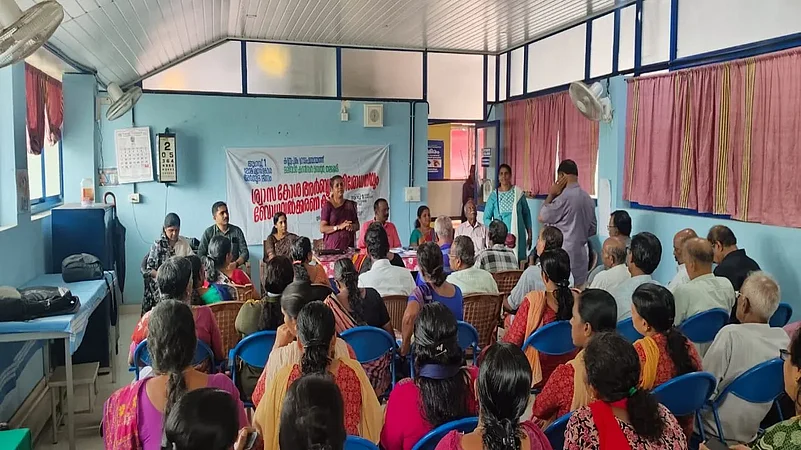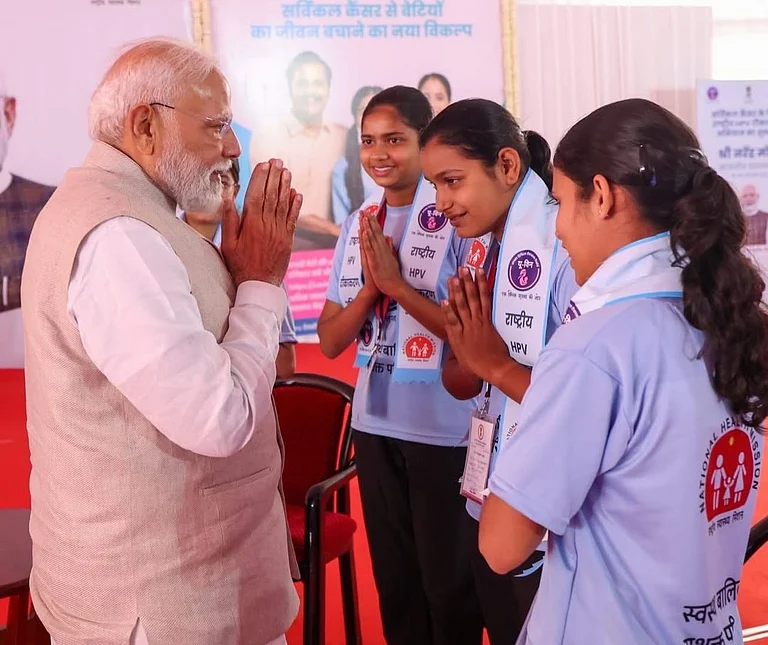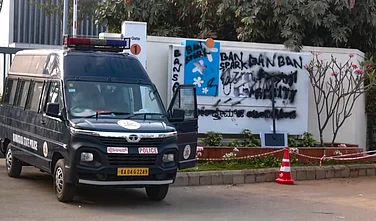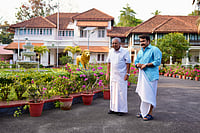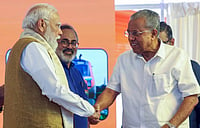
- Kannapuram panchayat in Kerala sets a model in the fight against cancer, through community-led programmes.
- The initiative, which has significantly improved early detection and prevention, has now been featured in a World Health Organisation journal.
- ASHA workers and Kudumbashree members played a pivotal role in mobilising women, not just for initial screenings but also for follow-up check-ups
Kannapuram, a village in northern Kerala, approximately 100 km from Kozhikode, has gained international recognition for its efforts in combating cancer. Through a community-driven awareness and screening programme carried out with the support of the Malabar Cancer Centre, the panchayat has managed to bring almost its entire population under regular health monitoring. The initiative, which has significantly improved early detection and prevention, has now been featured in a World Health Organisation (WHO) journal.
Kannapuram grama panchayat, spread across 14.39 square kilometres with 4,531 households and over 18,000 residents, has been conducting a sustained cancer awareness and screening drive since 2016. Over the past nine years, the panchayat has made significant progress in educating people about the disease and breaking the stigma surrounding it.
The programme is built on grassroots interventions, including house-to-house visits, periodic medical camps, and routine screenings for residents. The panchayat has also extended its outreach to migrant workers and vulnerable groups, ensuring that awareness and preventive care reach every section of the community.
The initiative was launched after a sharp rise in cancer cases among women in the village came to light. According to the World Health Organisation, breast cancer is the most common cancer among women worldwide and also a leading cause of cancer deaths, primarily due to late detection. According to a study, the incidence of breast cancer has been increasing in developing countries over the past three decades. Despite good health indicators, breast cancer is a public health problem in Kerala, with an annual incidence of 14.9/100,000 population. (A Population-based case-control study on breast cancer and the associated risk factors in a rural setting in Kerala)
Although unaware of these findings at the time, the panchayat decided to conduct a comprehensive survey encompassing all women in the village to ensure early diagnosis and timely treatment.
People in the village were naturally terrified of cancer. Fearing it, they were reluctant to take the detection test. A house-to-house general health survey was conducted among the 3800 households by community volunteers using a structured questionnaire. However, the Panchayat authorities acknowledge that many did not share accurate information due to fear and a lack of understanding.
“After this, we undertook an extensive awareness campaign among people of all ages,” says K V Ramakrishnan, former president of the panchayat. People had many misconceptions about the testing, he added.
Dr. Neethu A.P., assistant professor in the Preventive and Community Oncology Department at the Malabar Cancer Centre Post Graduate Institute of Oncology Sciences and Research, Thalassery — the hospital that partnered with the panchayat in its mission — recalls one such instance. “When I asked a woman to undergo a mammogram, she broke down in fear, saying she had two children and worried about who would look after them. She believed the test itself was meant only for cancer patients. Even my reassurance did little to calm her. But when the results came out, the relief and joy on her face were overwhelming for all of us,” Dr. Neethu said.
However, things began to change, and the awareness programme started to influence people.
The panchayath first focused on the women. In the total population, 55 per cent are women. “With the help of the Malabar Cancer Centre, we undertook extensive detection tests among the women in the panchayath. Those identified for further test were taken to the hospital, and advanced tests were carried out.” Panchayat President K. Rathi told Outlook. What was started to identify breast cancer among women soon expanded to identify cervical and uterine cancers. “For this, we conducted a 10-day camp with the help of the doctors. Tests were conducted, and the panchayat made arrangements and took those who were advised for further check-ups to Malabar Cancer Centre,” adds Rathi.
The Early Cancer Detection clinic began operating at the Public Health Centre in 2017.
The Family Health Centre was upgraded with new facilities, including cryotherapy to remove abnormal tissue and a colposcope to help detect early signs of cervical cancer. These additions have improved the centre’s ability to provide timely diagnosis and treatment.
ASHA workers and Kudumbashree members played a pivotal role in mobilising women — not just for initial screenings but also for crucial follow-up check-ups. “This is what makes the model effective,” explains Dr. Neethu A.P. “Because of fear and misconceptions, many women hesitate to undergo screening. But the panchayat authorities, with the help of ASHA workers and Kudumbashree units, persuaded them through relentless campaigning.”
The team employed innovative methods to spread awareness, incorporating messages into temple festivals and other religious gatherings where the community naturally gathered. “That made a big difference,” says Dr. Neethu. “We only provided technical support — the real driving force came from the people themselves.”
The campaign gained publicity as a women’s health empowerment movement, with females taking the lead, and all female stakeholders getting screened on the first day, thereby becoming role models. Trained female technicians screened 200–500 women daily.
Nine years of sustained grassroots cancer awareness have transformed a Kerala panchayat into a model for preventive health. Authorities say nearly 96% of women above 30 underwent breast cancer screening—a feat rarely achieved at the community level. Of those screened, approximately six per cent were referred for follow-up tests. The impact was remarkable: the detection rate stood at 0.96 per 1,000, with all cases identified at an early stage and treated successfully.
With women’s screening well established, Kannapuram panchayat has now shifted its focus to men. Campaigns and medical tests are being organised with the support of experts. Recognising the large number of migrant workers in the area, the panchayat has also begun conducting awareness sessions in Hindi. Panchayat president K. Rathi even took it upon herself to learn the language. “Now I can converse with them a little bit,” she says with a smile, underscoring how deeply the village has embraced inclusivity in its fight against cancer.







